Poison Ivy Rash vs. Other Skin Conditions: How to Tell the Difference
How to Identify a Typical Poison Ivy Rash
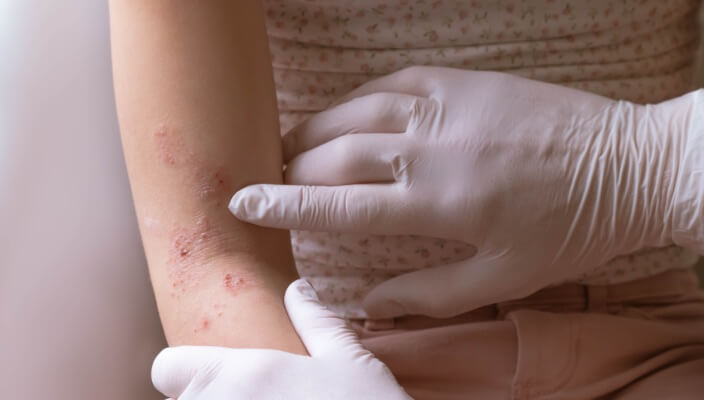 Noticing a rash on your skin may cause you to feel alarmed, but it's important to know how to tell the difference between rashes such as poison ivy, as well as allergic reactions, infections, and inflammation. Identifying initial signs, symptoms, and the timing of your rash can help significantly in determining if you are suffering from a poison ivy rash. Understanding the difference between topical dermatitis, eczema, insect bites, and poison ivy can help save time, so you can seek appropriate treatment as quickly as possible.
Noticing a rash on your skin may cause you to feel alarmed, but it's important to know how to tell the difference between rashes such as poison ivy, as well as allergic reactions, infections, and inflammation. Identifying initial signs, symptoms, and the timing of your rash can help significantly in determining if you are suffering from a poison ivy rash. Understanding the difference between topical dermatitis, eczema, insect bites, and poison ivy can help save time, so you can seek appropriate treatment as quickly as possible.Poison ivy rashes are triggered by an oil derived from the plant itself, named urushiol. Some of the first signs that you may have a poison ivy rash include immediate swelling and increased redness at the contact site of the poison ivy and the skin. You are likely to notice itching immediately after coming in contact with poison ivy, which will become more intense as time passes.
Additionally, poison ivy will cause blisters to begin forming along the same areas in which your skin was exposed to the plant within one to two days of initial contact. It's important to remember that a poison ivy rash can take anywhere between 12 and 72 hours to appear and fully develop, lasting up to three weeks, depending on the severity of the rash and treatment(s) sought. A poison ivy rash will also typically form a linear pattern wherever the plant was exposed on the body, making it easier to identify.
Poison Ivy Examples
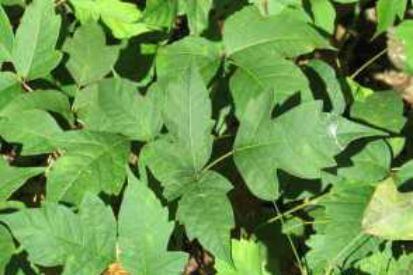
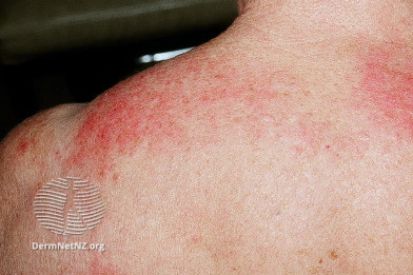
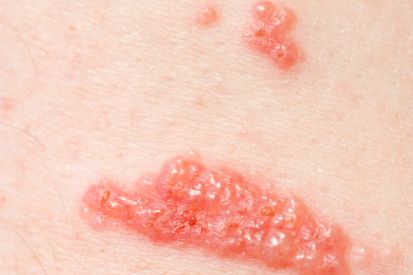
Other Skin Conditions
In addition to poison ivy, it's also important to know how to distinguish alternative skin conditions that you may be experiencing, especially if you have not recently come in contact with poison ivy in nature.
Insect Bites: Insect bites can also cause swollen, red, itchy bumps that may be painful and become increasingly irritating over time. However, insect bites will not form a linear pattern in most instances, which is a telltale sign of a poison ivy rash.
Contact Dermatitis: Contact dermatitis is another skin condition that typically forms due to an allergic or inflammatory reaction to a particular substance or allergen. Most often, contact dermatitis is triggered by contact with various detergents, chemical additives, and even metals (such as nickel). While contact dermatitis may cause redness, swelling, and blisters, it's not likely to do so in a linear pattern on the skin.
Psoriasis: Psoriasis is classified as an autoimmune disease and appears as a chronic skin condition. With Psoriasis, individuals may experience thickened, red patches around the skin that are difficult to remove or heal. Those with Psoriasis are most likely to experience outbreaks of the condition on their scalps, elbows, and knees in traditional cases.
Eczema: Eczema, or Atopic Dermatitis, is a chronic skin condition that causes inflammation, redness, itchiness, dryness, and scaliness of the skin. In most cases, eczema is due to genetic allergies, asthma, or underlying autoimmune conditions. In patients with eczema, blisters are uncommon.
Knowing how to tell the difference between poison ivy and alternative skin conditions or rashes is key to preventing misdiagnosis or seeking improper treatments. The more familiar you are with the identifiable signs and symptoms of poison ivy, the easier it will be for you to determine if you require specialized care from a licensed dermatologist.
At Pinnacle Dermatology, our expert team is dedicated to providing you with accurate diagnoses and effective treatments for all skin conditions, including poison ivy rashes. If you're unsure about the cause of your skin irritation or rash, don’t hesitate to schedule an appointment. Early and precise identification can lead to quicker relief and prevent further complications. Trust the professionals at Pinnacle Dermatology to help you achieve healthy, comfortable skin. Contact us at a location convenient to you to book your consultation and take the first step toward effective skin care.
Your skin's health is our top priority!
Featured Products
Check your local office for current stock!
Check your local office for current stock!
Featured Blogs

Learn to identify and distinguish poison ivy rashes from other skin conditions like eczema and insect bites
Read More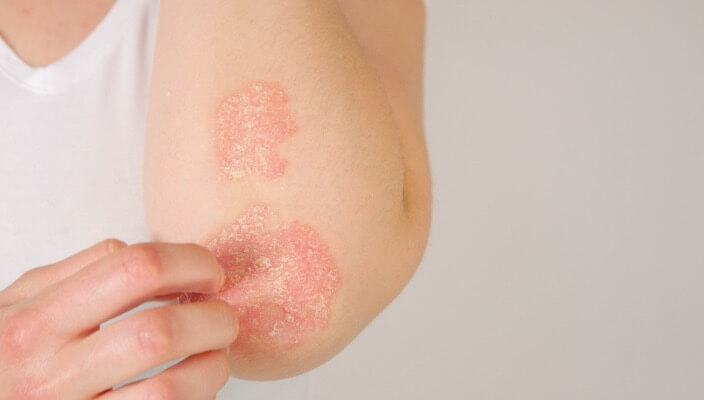
- General Dermatology
- Chronic Skin Conditions
Explore effective coping strategies and management techniques for psoriasis, tailored to individual needs and guided by dermatological expertise.
Read More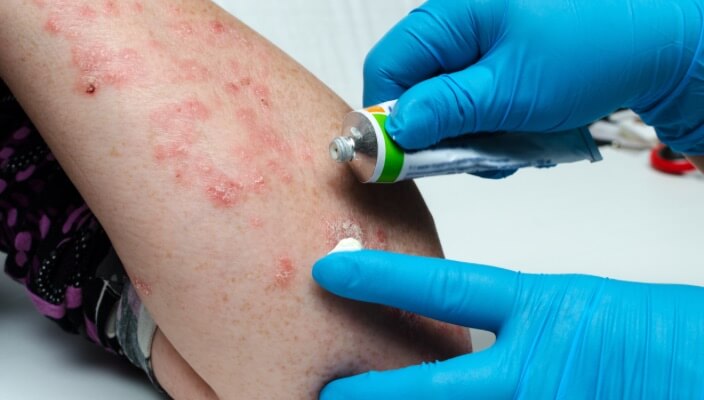
- General Dermatology
- Sun Safety
- Chronic Skin Conditions
Learn dermatologist tips to prevent poison ivy rashes for outdoor enthusiasts. Learn how to identify, avoid, and treat poison ivy effectively.
Read More


